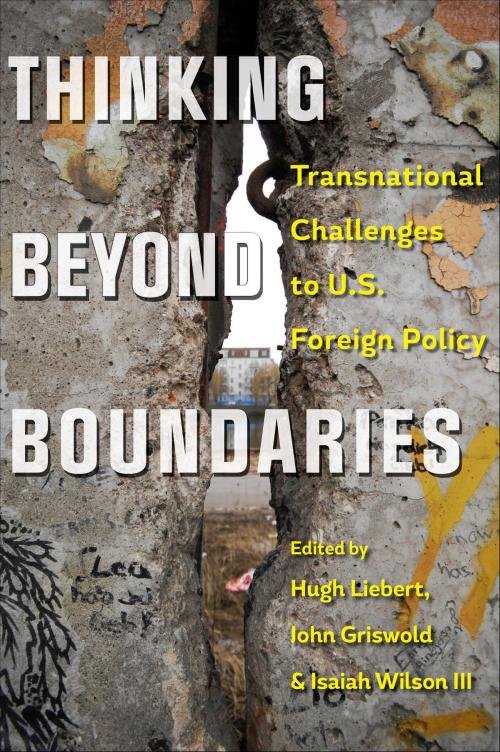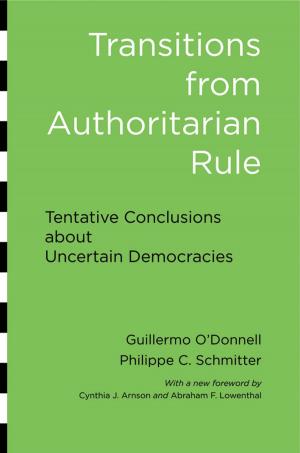Thinking beyond Boundaries
Transnational Challenges to U.S. Foreign Policy
Nonfiction, Social & Cultural Studies, Political Science, International, International Security, History| Author: | ISBN: | 9781421415307 | |
| Publisher: | Johns Hopkins University Press | Publication: | December 22, 2014 |
| Imprint: | Language: | English |
| Author: | |
| ISBN: | 9781421415307 |
| Publisher: | Johns Hopkins University Press |
| Publication: | December 22, 2014 |
| Imprint: | |
| Language: | English |
Written under the direction of West Point social sciences faculty for its Student Conference on U.S. Affairs (SCUSA), Thinking beyond Boundaries introduces undergraduates to aspects of transnational conflict that extend beyond traditional political and intellectual boundaries, providing context to a variety of contemporary issues including immigration, terrorism, and environmental security. This volume challenges students to behave not as passive observers but as decision makers who engage in policy-level debate and formulate specific policy recommendations.
The contributors ask students to consider how the United States promotes or even determines an effective and appropriate policy response to boundary-spanning problems. Since future political and military leaders, as well as policymakers, will face the challenge of collective action within the confines of an uncoordinated international system, the book urges students to consider the role of domestic and foreign factors in their decision-making processes. The book’s three-part organization considers the blurred line between domestic and foreign policy, the cross-border implications of foreign policy, and the challenges and opportunities that extend beyond the boundaries separating the world’s regions. Each chapter includes a list of recommended readings and resources.
Touching on civil-military relations and the global challenges involved with hacking, foreign aid, weapons proliferation, international trade, and climate change, Thinking beyond Boundaries draws thoughtful conclusions about the proper role of the United States around the world.
Written under the direction of West Point social sciences faculty for its Student Conference on U.S. Affairs (SCUSA), Thinking beyond Boundaries introduces undergraduates to aspects of transnational conflict that extend beyond traditional political and intellectual boundaries, providing context to a variety of contemporary issues including immigration, terrorism, and environmental security. This volume challenges students to behave not as passive observers but as decision makers who engage in policy-level debate and formulate specific policy recommendations.
The contributors ask students to consider how the United States promotes or even determines an effective and appropriate policy response to boundary-spanning problems. Since future political and military leaders, as well as policymakers, will face the challenge of collective action within the confines of an uncoordinated international system, the book urges students to consider the role of domestic and foreign factors in their decision-making processes. The book’s three-part organization considers the blurred line between domestic and foreign policy, the cross-border implications of foreign policy, and the challenges and opportunities that extend beyond the boundaries separating the world’s regions. Each chapter includes a list of recommended readings and resources.
Touching on civil-military relations and the global challenges involved with hacking, foreign aid, weapons proliferation, international trade, and climate change, Thinking beyond Boundaries draws thoughtful conclusions about the proper role of the United States around the world.















